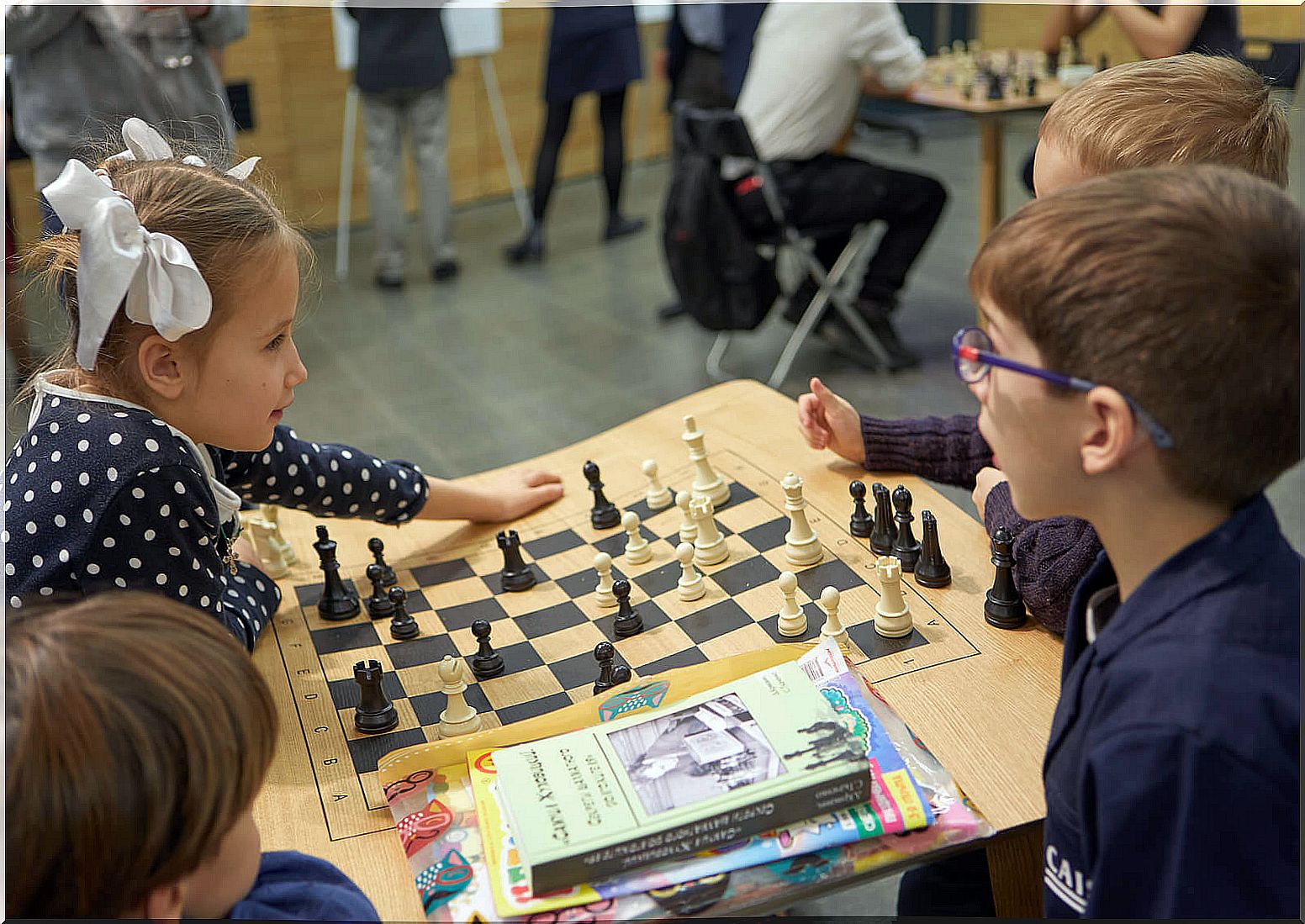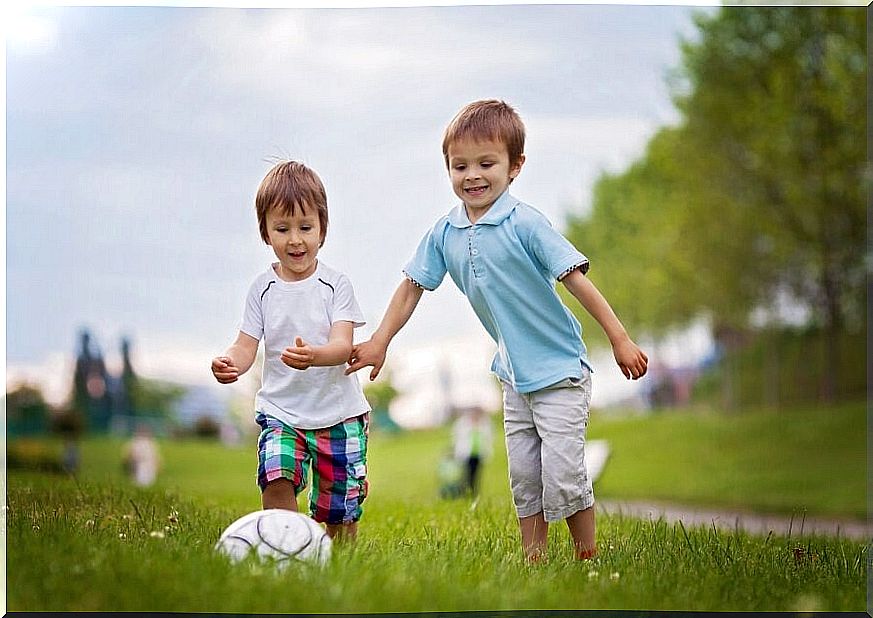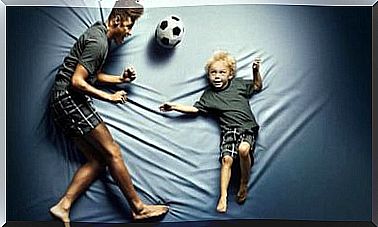How To Promote Healthy Competitiveness In Children

Since children are born, they live in a competitive world. School grades, sports, games and all of adult life include a component of comparison with others where some win and others lose.
For this reason, fostering healthy competitiveness among the little ones will help them develop a healthy, strong and noble personality, something that will make them prone to being happier on an individual level and enjoying more satisfactory social relationships.
And it is that we have all met some excessively competitive child and we have witnessed their behaviors and attitudes. Children who when they win humble the loser and who when they lose are prey to anger. Little ones with a great intolerance to frustration and a lack of basic values such as respect, humility and companionship.
No mother wants that for her child, yet the opposite extreme is not encouraging either. Children who are excessively passive, lacking in motivation, and a desire to improve are less likely to be successful in the tasks they undertake.
But, above all, they are less likely to develop a confidence in themselves and in their abilities, something, without a doubt, essential. Thus, a middle ground will be the most appropriate when educating.
How to promote healthy competitiveness in children?

Be tested
The positive part of competitiveness is that it encourages children to take on challenges, to try and do their best. Thus, with each success and progress, self-esteem and self-confidence are strengthened, as long as the idea is instilled in them from home that error is part of learning and that it is something natural.
Those kids who are pushed too hard end up seeing any failure as personal failure. This greatly damages the image they have of themselves and can lead them to suffer greatly when they do not achieve perfection. They may also begin to fear challenges, as failing is not an option for them and therefore it is preferable not to try.
Focus on the process
On the other hand, it is very important that we convey to the children that what is important is the process and not the result. The grade obtained is not as relevant as how hard you have worked studying. In the same way, it is not as relevant to win a match as having enjoyed with your teammates and having given your best.
The key is to always do your best, regardless of whether you ultimately win or lose. In this way, children learn to value effort, perseverance, and discipline. Skills such as frustration tolerance and resilience are also instilled. Thus, they learn that their value does not depend on what they achieve, but on what they are as people.
Compete with yourself
The best teaching that we can put into practice if we want to promote healthy competitiveness is that there is no one to overcome but oneself.
It’s not about being the best in class, team, or family. It is not a question of outperforming a friend or drawing better than a brother. The only person with whom a child must ultimately compete is himself.
In other words, the goal is to be a little better each day than the previous one. Strive to overcome your own limits without looking at what others achieve, without comparing yourself.

Fostering healthy competitiveness prepares them for the world
Ultimately, the main objective is to convey a balanced attitude. In this way, children will be able to celebrate their own victories and also rejoice in the successes of others. This healthy humility will allow them not to feel inferior in the face of defeat because they will be clear about their unconditional value.
They will also be able to learn from their mistakes, to improve every day and to overcome adversity with discipline and perseverance. And of course, they will be able to cooperate and collaborate knowing that ultimately this is always the best strategy.
Encouraging healthy competitiveness from childhood helps them to trust themselves and work towards their goals. But it also teaches them that we all have qualities and can learn from each other.










